featured
US Lawmakers Advance Bill to Ban Hemp Products With THC
Published
10 hours agoon
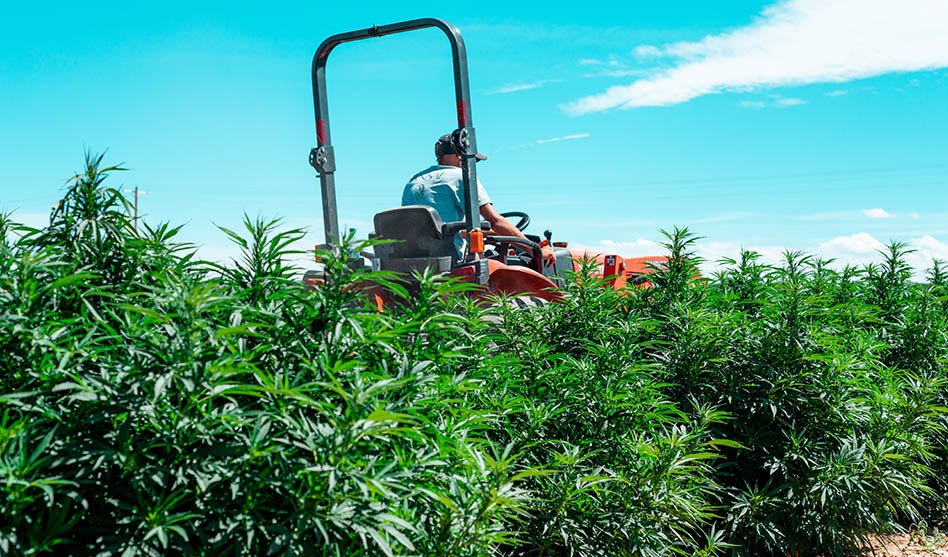
U.S. Senate lawmakers unanimously voted to advance legislation on July 10 that contains cataclysmic language for those involved in the cannabinoid hemp industry.
The Senate Appropriations Committee approved the fiscal 2026 Agriculture, Rural Development, Food and Drug Administration (FDA), and Related Agencies Appropriations Act with 27 members in support. The 136-page spending bill provides more than $27 billion in discretionary funding to support farmers, rural communities, nutrition programs, medical research and myriad issues to protect the nation’s food supply.
However, lawmakers also included provisions to redefine hemp in a manner that closes a “loophole that has resulted in the proliferation of unregulated intoxicating hemp products being sold across the country,” according to a summary from the committee.
Sen. Mitch McConnell, R-Ky., spearheaded the federal legalization of hemp in the 2018 Farm Bill, viewing the plant’s grain and fiber outputs as agricultural commodities that could provide farmers in the Bluegrass State an alternative cash crop amid the declining tobacco industry. But what McConnell did not expect was for the 2018 legislation to lead to a booming consumer demand for intoxicating cannabinoid products, such as delta-8 THC gummies, that include synthetic derivatives from hemp.
The former majority leader spoke about this unintended consequence on Thursday as a member of the Appropriations Committee.
“These intoxicating products have flooded the market in the absence [of a] regulatory structure and often use deceptive and predatory marketing towards children with packaging and logos similar to existing food products, such as Oreos, candy, gummies and cereals,” McConnell said. “The way I see it, the language I helped secure takes us back to the original intent of the 2018 Farm Bill and closes this loophole. My 2018 hemp bill sought to create an agricultural hemp industry, not open the door to the sale of unregulated, intoxicating, lab-made, hemp-derived substances with no safety framework.”
The 2025 hemp provisions that advanced out of the Senate committee this week largely mirror those that the U.S. House Appropriations Committee adopted on June 23 under the lead of Rep. Andy Harris, R-Md.
Under both versions, hemp-derived cannabinoid products containing synthetic compounds and/or quantifiable amounts of THC or THCA—or other cannabinoids that have similar effects on humans or animals—would be illegal. The legislation authorizes the U.S. Secretary of Health and Human Services to determine what qualifies as “quantifiable amounts.”
However, hemp grown or harvested for “industrial” purposes, such as gain and fiber, would not be held to the same stringent standard and instead would be defined based on having a total THC level of not more than 0.3% on a dry-weight basis.
Farmers could still grow industrial hemp to produce microgreens or other edible hemp leaf products intended for human consumption that are “harvested” from an immature hemp plant under the Senate legislation. The House’s version uses the term “derived” from an immature hemp plant.
Also, the Senate’s version delays implementing the new definition for hemp for one year.
While cannabis and hemp industry stakeholders argue over whether a “loophole” persists in the 2018 Farm Bill, legislators on both sides of the aisle made their intent clear in the Senate body this week: the federal government does not want intoxicating hemp products to be sold to American consumers, especially not children.
Sen. Jeff Merkley, D-Ore., said during the committee markup that while he supports McConnell’s effort to clarify that legislative intent, he also fears the new definition would have another unintended consequence—this time on nonintoxicating hemp products.
“My concern about the amendment, or the definition as written, is that it addresses one very important issue, but causes another problem,” Merkley said. “The important issue it addresses is not allowing hemp to be grown to produce hallucinogenic products. And that, unfortunately, due to the magic of laboratories, has occurred.
“But then there are other products that come from hemp, such as CBD, that has in fact been a significant factor as a health care supplement in many, many products across America that does not have a hallucinogenic effect.”
Amid this worry, Merkley said he’d like to continue to work with McConnell over the coming year to develop a definition that does not potentially eliminate CBD hemp products from the U.S. marketplace.
Jonathan Miller, general counsel at the U.S. Hemp Roundtable, offered a similar take in a statement provided to Cannabis Business Times.
“Senator McConnell got hemp right in the 2018 Farm Bill, and again today when he said that we need to prohibit dangerous synthetic and copycat products, while keeping all hemp products out of the hands of children,” Miller said. “However, how that is done matters. The U.S. Hemp Roundtable believes that the best way to do that is through robust regulation, not prohibition.”
The hemp business advocacy organization believes that a blanket ban on more than 90% of consumable hemp products is not the right path, Miller said.
The American Trade Association of Cannabis and Hemp (ATACH) also weighed in on the Senate committee’s approval of the hemp language, denouncing the current market for lab-made, synthetic THC.
However, ATACH Vice President of Policy and State Advocacy Chris Lindsey had a different take on CBD, saying that the bill provides distinctions between intoxicating and nonintoxicating products, synthetic and natural products, and industrial and consumer products to create regulatory lanes.
“Natural and nonintoxicating hemp products, such as CBD, would be recognized and protected for the first time under federal law,” Lindsey said. “The bill stipulates that the Health and Human Services Secretary would set a limit for THC in these products, giving manufacturers a clear boundary and implementation timeline. These protections for CBD and similar products are explicit and intentional.”
In a committee report on the bill, the body’s members acknowledged the “growing consumer demand for American-made hemp products” as well as the need for “clear, science-based guidance” and regulations to help ensure consumer safety and confidence as businesses innovate to meet that demand.
To support that effort, the committee members directed the FDA to work with industry stakeholders, including small businesses, scientists, manufacturers, public health experts and academic researchers, on suggested limits for the amounts of THC or other cannabinoids in hemp-derived products. They intend for this collaboration to develop meaningful regulations under the Federal Food, Drug, and Cosmetic Act.
Furthermore, while the Senate legislation itself doesn’t intend to regulate federally illegal cannabis, the committee’s report on the bill sent a warning message to state-sanctioned businesses:
“The committee is concerned about the proliferation of products marketed in violation of the Federal Food, Drug, and Cosmetic Act [FFDCA], including products containing derivatives of the cannabis plant. The committee is aware that non-FFDCA compliant products pose potential health and safety risks to consumers through misleading, unsubstantiated and false claims that cannabis and cannabis derivatives can treat serious and life-threatening diseases and conditions, including COVID–19 and cancer.”

Author: mscannabiz.com
MScannaBIZ for all you Mississippi Cannabis News and Information.
You may like
-


Agents Clash With Protesters During ICE Raids At Southern California Marijuana Farm | Camarillo | 4K
-


Stephen Miller: Trump admin ‘liberating’ exploited children with marijuana farm ICE raid
-


New study links cannabis use to heart disease risk
-
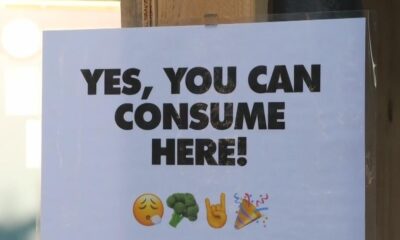

California State Fair’s cannabis use area grows in second year
-
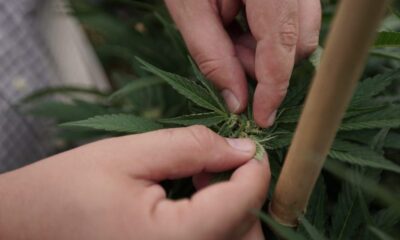

Today My Cannabis Brand Launches In West Virginia, Where I Spent Years Behind Bars For Growing Medical Marijuana (Op-Ed)
-
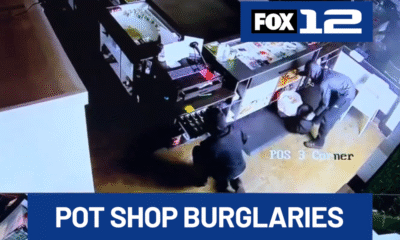

Multnomah Co. DA, police investigating alleged burglary ring targeting Portland cannabis businesses
featured
Today My Cannabis Brand Launches In West Virginia, Where I Spent Years Behind Bars For Growing Medical Marijuana (Op-Ed)
Published
4 hours agoon
July 12, 2025
“Legalization is progress, but we won’t be satisfied until every cannabis prisoner is set free.”
By Ryan Basore, Redemption Cannabis and The Redemption Foundation
A little over a decade ago, I was sitting in a federal prison in Morgantown, West Virginia, serving time for growing medical cannabis in compliance with Michigan’s state law. I wasn’t a trafficker. I wasn’t running guns or laundering money. I was a state-licensed caregiver using cannabis to help people with debilitating conditions. Then I became one of the thousands targeted during a time when the federal government treated medical cannabis providers like public enemies.
Today—July 11—my cannabis brand launches in the same town in which I spent years behind bars for growing medical cannabis.
As traumatic as that experience was, I knew I couldn’t let it deter me from doing what’s right. That’s what led me to found Redemption Cannabis, one of Michigan’s top-selling cannabis brands and one that supports those still serving time for nonviolent cannabis offenses.
Together with partners like Trulieve and Altvm, we provide cannabis products to patients and consumers across states like Michigan, Maryland, Oklahoma, Pennsylvania and now West Virginia, where I once wore prison tans. It’s a redemption story I’m proud of, but it’s also a privilege that too many others have been denied.
Despite widespread legalization across a majority of U.S. states, many in the U.S. remain incarcerated for cannabis offenses. Their “crime”? Often the same actions that built today’s billion-dollar cannabis industry. Legalization has crept forward, but justice has not.
I launched the Redemption Foundation in 2019 to change that. Through our programs, we’ve helped fund over 2,000 free expungements and provided direct financial support to federal cannabis prisoners across the country.
One of our core efforts is our commissary program, which puts up to $300 a month, the maximum allowed, on the books of people incarcerated for non-violent cannabis offenses. For someone earning $14 a month in prison wages, that support isn’t just helpful. It’s life-changing.
We also partner with organizations like the Weldon Project’s Mission Green and the Last Prisoner Project to expand our reach and impact. The goal isn’t just release, it’s restoration. That means helping people return to their communities, access housing, find jobs and reclaim their dignity.
But here’s the hard truth: Unless federal law changes, we will keep seeing these contradictions. The Controlled Substances Act still classifies cannabis as a Schedule I drug, a substance with high risk for abuse with no currently accepted medical use. Until that changes, people will keep getting sentenced, even as legalization spreads.
Even expungement isn’t enough. In many states, it isn’t automatic. People need attorneys, paperwork, court appearances and other resources that are rarely made accessible to them just to be able to live a normal life. They struggle to find work, obtain housing or move on with their lives. Meanwhile, a lucrative industry has emerged around cannabis, the foundations of which were put in place by pioneers who continue to suffer behind bars or remain locked out of the legal industry.
Those of us who now enjoy the ability to consume and profit from legal cannabis owe our freedom to the people who took risks when it wasn’t safe or legal to do so. We have to recognize that our prosperity is a result of their sacrifice.
That’s why 10 percent of all Redemption Cannabis licensing revenue goes to supporting those still incarcerated and to securing their release. When you buy our products, you’re not just consuming, you’re contributing to the pursuit of justice.
Redemption isn’t just our brand name. It’s our mission.
Legalization is progress, but we won’t be satisfied until every cannabis prisoner is set free.
Ryan Basore is the founder of Redemption Cannabis and the Redemption Foundation, which supports cannabis prisoners and fights for restorative justice in the cannabis industry. He previously served a federal sentence for medical marijuana cultivation in Michigan.
Photo courtesy of Chris Wallis // Side Pocket Images.

Author: mscannabiz.com
MScannaBIZ for all you Mississippi Cannabis News and Information.
featured
Texas Governor Calls Hemp Products ‘Lawful Agricultural Commodity’ in Special Session Notice
Published
5 hours agoon
July 12, 2025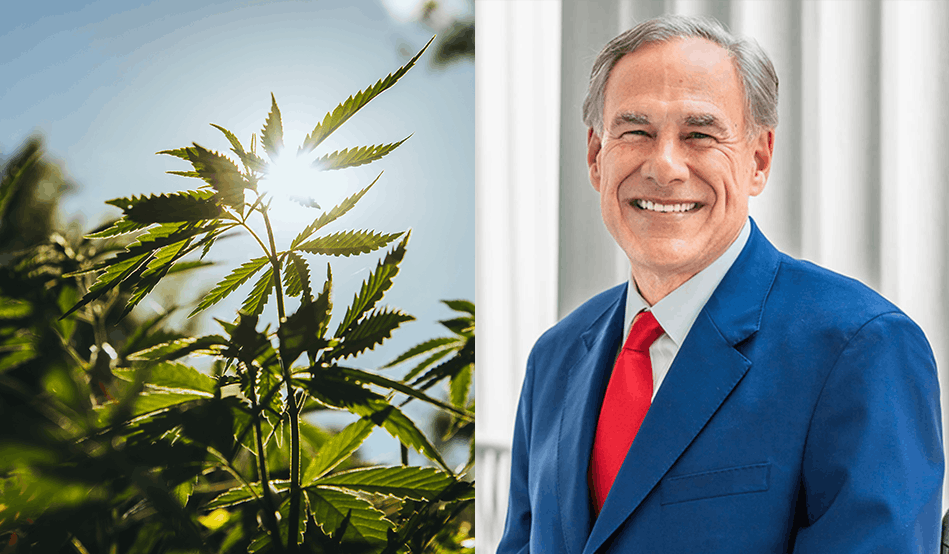
Texas Gov. Greg Abbott doubled down on his stance that hemp-derived products should be regulated, not banned, in the Lone Star State.
Abbott included a pair of hemp-related proposals in his July 9 proclamation submitted to Texas Secretary of State Jane Nelson’s office, calling for a special legislative session to convene at noon on July 21 in Austin.
The chief executive outlined 18 pieces of legislation for lawmakers to consider, from improving early warning systems and other preparedness infrastructure in flood-prone areas to revising the state’s congressional redistricting plan—a move that could protect Republicans’ slim majority in the U.S. House come the 2026 midterm election.
Abbott also called for legislation on hemp proposals that he said would:
- Make it a crime to provide hemp-derived products to children under 21 years of age; and
- Comprehensively regulate hemp-derived products, including limiting potency, restricting synthetically modified compounds, and establishing enforcement mechanisms, all without banning a lawful agricultural commodity.
The July 9 proclamation comes after the governor vetoed Senate Bill 3 on June 22. The legislation would have banned consumable hemp products containing quantifiable amounts of THC or other intoxicating cannabinoids. It was backed by 105 of 108 Republicans in the state’s GOP-controlled Legislature.
In his June 22 veto proclamation, Abbott said S.B. 3 collides with federal law and would likely face a lengthy legal battle before the state could implement and enforce a ban, hindering rather than solving “public safety” issues that lawmakers hope to contain.
“There are many bad actors who have abused the authority granted to them by both the federal government and the state of Texas,” the governor wrote. “But there are also many Texans conducting business responsibly, who invested millions of dollars planting fields or opening up retail stores in reliance on laws making hemp a lawful product to ‘be sold at retail or otherwise introduced into commerce.’”
While Abbott may be the most powerful elected official in Texas, he’s up against a potential showdown with Lt. Gov. Dan Patrick, a fellow Republican who championed S.B. 3 as the presiding officer in the state’s Senate. Following Abbott’s veto, Patrick accused the governor of wanting to “legalize recreational marijuana.”
“This is a fight that didn’t need to be,” Patrick said during a June 23 press conference, when he picked apart the governor’s veto proclamation.
On June 24, two days after Abbott’s veto, the U.S. Court of Appeals for the Eighth Circuit vacated a preliminary injunction that had blocked neighboring Arkansas from implementing a hemp product ban that Gov. Sarah Huckabee Sanders signed into law two years earlier.
While the Eighth Circuit doesn’t encompass Texas, Patrick used that decision as leverage to push back against the governor’s veto.
“It won’t be long before 8,000 smoke and vape shops will be out of business in Texas,” Patrick wrote on X following the circuit court decision. “All we have to do is pass S.B. 3, just like we passed during the regular session.”
Despite the gubernatorial dispute ahead of the special session, the legislative branch will be the ultimate decider on whether to regulate or ban hemp in what has had a $10.3 billion economic impact for the state, employing some 50,000 workers, according to Whitney Economics.
Notably, Texas House members already supported an outright ban on intoxicating hemp products during the regular session on May 21, when they voted, 86-53, to align their version of S.B. 3 with the upper chamber’s version instead of adopting a committee substitute bill that Rep. Ken King, R-Canadian, crafted as the chair of the State Affairs Committee.
King’s substitute would have tightly regulated hemp-derived products instead of banning them.
“Committee substitute to Senate Bill 3 came as a counter option to an outright ban,” King said May 21 on the House floor. “Some of you are for a ban. Many of you aren’t. And that’s the reason we have a choice. How you vote on this amendment [to return the House version to a ban] is completely up to you. I will be voting no on the amendment. And the reason is, I read about the 1920s. I don’t think prohibition worked in 1920; I don’t think it’s going to work in [the] 2020s.”
Ultimately, the Texas House rejected the State Affairs Committee’s alternative bill and then supported S.B. 3’s prohibition language in a 95-44 vote to send the legislation to Abbott’s desk.
While King couldn’t sway his colleagues in the House to support regulation over prohibition, Abbott’s clout as governor remains to be seen in the upcoming special session.
In his June 22 veto message, Abbott offered a sample of 19 “potential” regulations for lawmakers to consider:
- Selling or providing a THC product to a minor must be punishable as a crime;
- Sales must be prohibited near schools, churches, parks, playgrounds and other areas frequented by children;
- Packaging must be child-resistant, tamper-evident, and resealable;
- Products must not be made, packaged, or marketed in a manner attractive to children;
- Any store selling these products must have a permit and restrict access to anyone under the age of 21, with strict penalties for any retailer that fails to comply;
- Products containing THC may not contain other psychoactive substances (e.g., alcohol, tobacco, kratom);
- Testing must be required at every phase of production and manufacturing, including for both plants and derivative consumable products;
- Manufacturing and processing facilities must be subject to permitting and food safety rules;
- Permit and registration fees must suffice to support robust enforcement and testing by the Texas Alcoholic Beverage Commission, in partnership with other state agencies;
- An operator’s permit and warning/danger signs must be posted at any store selling these products;
- Sales must be limited to the hours between 10 a.m. and 9 p.m., and prohibited on Sunday;
- The amount of THC permissible in each product must be restricted, and an individual may make only a limited number of purchases in a given period of time;
- Labels must include a surgeon general-style warning, a clear disclosure of all ingredients, including the THC content, and a scannable barcode or QR code linking to test results;
- Fraudulently creating or displaying manifests or lab results must be punishable as felony offenses;
- Public consumption, consumption on the premises of any store that sells these products, and possession of an open container in a vehicle must be punishable as crimes;
- The attorney general, district attorneys and county attorneys must have the authority to pursue violations under the Deceptive Trade Practices Act;
- Local governments must have the option to prohibit or limit stores selling these products;
- Excise taxes must be assessed on these products to fund oversight and enforcement; and
- Additional funding must be provided to ensure law enforcement has sufficient resources to vigorously enforce restrictions.
“Passing a law is not the same thing as actually solving a problem,” Abbott wrote. “Texas needs a bill that is enforceable and will make our communities safer today, rather than years from now.”

Author: mscannabiz.com
MScannaBIZ for all you Mississippi Cannabis News and Information.
featured
Washington State Government Panel Urges ‘Safe Supply’ Model To Reduce Drug Overdose Deaths
Published
6 hours agoon
July 12, 2025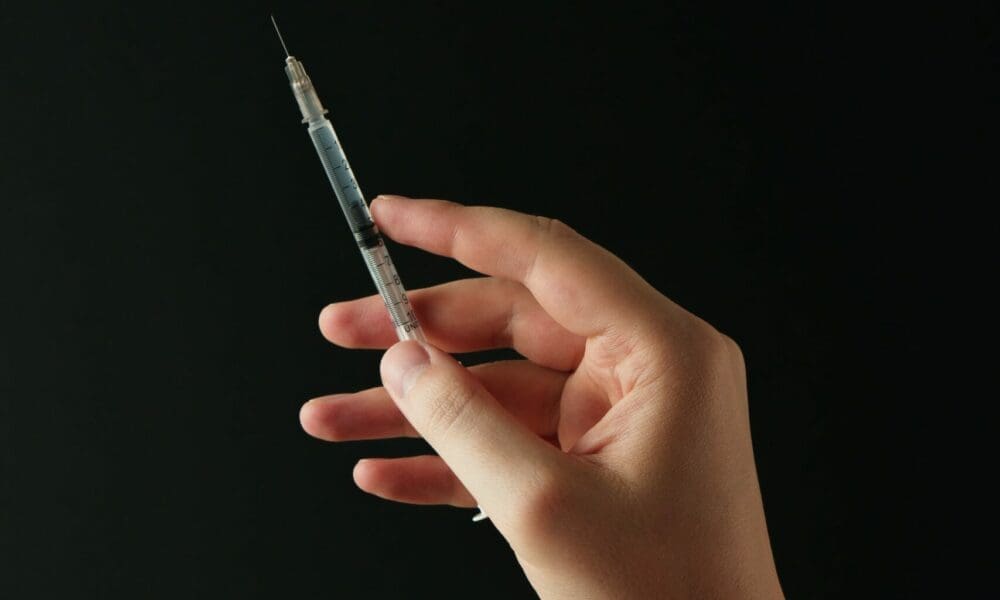
A Washington State government working group is renewing its call for officials to take steps toward ensuring “a regulated, tested supply of controlled substances to individuals at risk of drug overdoses,” pointing to a number of policy options developed in recent years.
Members said in a report that the goals of the safe supply reform are to ensure substances are as safe as possible to consume and to minimize peripheral harms from drug criminalization and incarceration. Changes would also aim to reduce theft, petty crime and syringe litter often associated with illicit drug activity.
The work group presented its safe supply recommendations at a meeting last month, according to The Center Square, but the proposal itself is not new. The state Substance Use Recovery Services Advisory Committee (SURSAC), created through a 2021 law, recommended the following year that lawmakers decriminalize the possession of controlled substances, and the body “has expressed broad support to establish a system to provide safe supply services,” the recommendation report notes.
Four different safe supply frameworks were recommended at 2022 SURSAC special meeting, including prescription and supervised consumption, prescription and self-administration, a dispensary model and a community-based “buyer’s club.”
SURSAC / Washington State Health Care Authority
Republican lawmaker Rep. Travis Couture told The Center Square that he opposes the state taking a role in the safe supply effort, adding that SURSAC seems uninterested in considering other approaches.
“They only want to double down on the failures,” he said, “and what we’re talking about here is taxpayer-funded drug dealing, where the state would hand out heroin, fentanyl and meth on our dime.”
“That’s not treatment,” Couture added, “that’s surrender.”
SURSAC, for its part, wants to see a clinical trial by researchers and a safe supply pilot program enacted by lawmakers.
A subset of Democratic lawmakers did briefly consider the decriminalization of simple drug possession following a 2021 state Supreme Court ruling that struck down Washington’s possession law as unconstitutional. Instead, the legislature chose to recriminalize possession as a lesser charge. And in years since, lawmakers have been more hesitant to advance sweeping reforms such as decriminalization.
As of earlier this year, officials across the state were also still making uneven progress on requirements to vacate thousands of past criminal convictions following the Supreme Court ruling.
In May, a cut to a state budget bill eliminated about $5 million to support legal aid groups working on the clearance effort.
“It’s a gut punch,” Camerina Zorrozua, the legal director and co-founder of The Way to Justice, a nonprofit legal aid organization based in Spokane that has relied on the funding since 2021, told InvestigateWest at the time. “The rug was just pulled out from under us.”
Earlier this year, state Democrats once again also gave up on a plan that would have legalized home cultivation of marijuana for personal use, opting instead to keep the conduct classified as a felony.
—
Marijuana Moment is tracking hundreds of cannabis, psychedelics and drug policy bills in state legislatures and Congress this year. Patreon supporters pledging at least $25/month get access to our interactive maps, charts and hearing calendar so they don’t miss any developments.![]()
Learn more about our marijuana bill tracker and become a supporter on Patreon to get access.
—
If enacted law, HB 1449, from Rep. Shelley Kloba, would have allowed adults 21 and older to grow up to six cannabis plants at home for personal use, with households capped at 15 plants regardless of how many adults reside on the premises. People could also lawfully keep the marijuana produced by those plants despite the state’s existing one-ounce limit on possession.
Kloba and other supportive lawmakers have worked for nearly a decade to pass a law allowing adults to grow a small number of cannabis plants for their own use, but each year, other lawmakers and executive agencies have stood in the way of the proposal.
Image courtesy of Dima Solomin.

Author: mscannabiz.com
MScannaBIZ for all you Mississippi Cannabis News and Information.

Agents Clash With Protesters During ICE Raids At Southern California Marijuana Farm | Camarillo | 4K

Stephen Miller: Trump admin ‘liberating’ exploited children with marijuana farm ICE raid

New study links cannabis use to heart disease risk

California State Fair’s cannabis use area grows in second year

Today My Cannabis Brand Launches In West Virginia, Where I Spent Years Behind Bars For Growing Medical Marijuana (Op-Ed)

Multnomah Co. DA, police investigating alleged burglary ring targeting Portland cannabis businesses

Texas Governor Calls Hemp Products ‘Lawful Agricultural Commodity’ in Special Session Notice

Local businessmen launch medical cannabis clinic in Louisville | Wdrb-video

Washington State Government Panel Urges ‘Safe Supply’ Model To Reduce Drug Overdose Deaths
Access Denied

The Best Tips About Hot Tubbing While Stoned

Shocking moment protester ‘opens fire’ on cop during ICE raid at California weed farm as FBI offers $50k for info

Pennsylvania Could Be 25th State to Legalize Adult-Use Cannabis Under New Bill

ICE Raid Turns Violent at Camarillo Cannabis Farm

Bipartisan Congressional Lawmakers Push To Support Psychedelics Research With $10 Million Amendment To Defense Spending Bill

Protesters, federal agents clash after immigration raid on California cannabis farm

US Lawmakers Advance Bill to Ban Hemp Products With THC

Video New study links cannabis use to heart disease risk

What It Means for Cannabis, Labor and Immigration (UPDATED)

Video shows Federal agents throw U.S. citizen to the ground during raid at cannabis farm

Former NFL Star Talks Marijuana Rescheduling With Top Trump Administration Officials At White House Meeting

Protesters clash with agents at ICE raid on Southern California cannabis farm

Retro Gaming While Consuming Cannabis Is On The Rise

Undocumented minors found in raid at cannabis farm

Alert: Department of Cannabis Control updates data dashboards with full data for 2023

Connecticut Appoints The US’s First Cannabis Ombudsperson – Yes there is a pun in there and I’m Sure Erin Kirk Is Going To Hear It More Than Once!

5 best CBD creams of 2024 by Leafly

Free delta-9 gummies from Bay Smokes

EU initiative begins bid to open access to psychedelic therapies
New Study Analyzes the Effects of THCV, CBD on Weight Loss

Mississippi city official pleads guilty to selling fake CBD products

May 2024 Leafly HighLight: Pink Runtz strain

Curaleaf Start Process Of Getting Their Claws Into The UK’s National Health System – With Former MP (Resigned Today 30/5/24) As The Front Man

5 best autoflower seed banks of 2024 by Leafly

Horn Lake denies cannabis dispensary request to allow sale of drug paraphernalia and Sunday sales | News

Discover New York’s dankest cannabis brands [September 2024]

Local medical cannabis dispensary reacts to MSDH pulling Rapid Analytics License – WLBT

Press Release: CANNRA Calls for Farm Bill to Clarify Existing State Authority to Regulate Hemp Products

Nevada CCB to Accept Applications for Cannabis Establishments in White Pine County – “Only one cultivation and one production license will be awarded in White Pine County”

5 best THC drinks of 2024 by Leafly

6 best CBD gummies of 2024 by Leafly

The Daily Hit: October 2, 2024

5 best delta-9 THC gummies of 2024 by Leafly

Weekly Update: Monday, May 13, 2024 including, New Guide for Renewals & May Board meeting application deadline

People In This State Googled ‘Medical Marijuana’ The Most, Study Shows

Thailand: Pro-cannabis advocates rally ahead of the government’s plan to recriminalize the plant

PRESS RELEASE : Justice Department Submits Proposed Regulation to Reschedule Marijuana

Press Release: May 9, STIIIZY and Healing Urban Barrios hosted an Expungement Clinic & Second Chance Resource Fair
Trending
-

 California Cannabis Updates1 year ago
California Cannabis Updates1 year agoAlert: Department of Cannabis Control updates data dashboards with full data for 2023
-

 Breaking News1 year ago
Breaking News1 year agoConnecticut Appoints The US’s First Cannabis Ombudsperson – Yes there is a pun in there and I’m Sure Erin Kirk Is Going To Hear It More Than Once!
-

 best list12 months ago
best list12 months ago5 best CBD creams of 2024 by Leafly
-

 Bay Smokes1 year ago
Bay Smokes1 year agoFree delta-9 gummies from Bay Smokes
-

 Business10 months ago
Business10 months agoEU initiative begins bid to open access to psychedelic therapies
-

 cbd1 year ago
cbd1 year agoNew Study Analyzes the Effects of THCV, CBD on Weight Loss
-

 Mississippi Cannabis News1 year ago
Mississippi Cannabis News1 year agoMississippi city official pleads guilty to selling fake CBD products
-

 California1 year ago
California1 year agoMay 2024 Leafly HighLight: Pink Runtz strain




